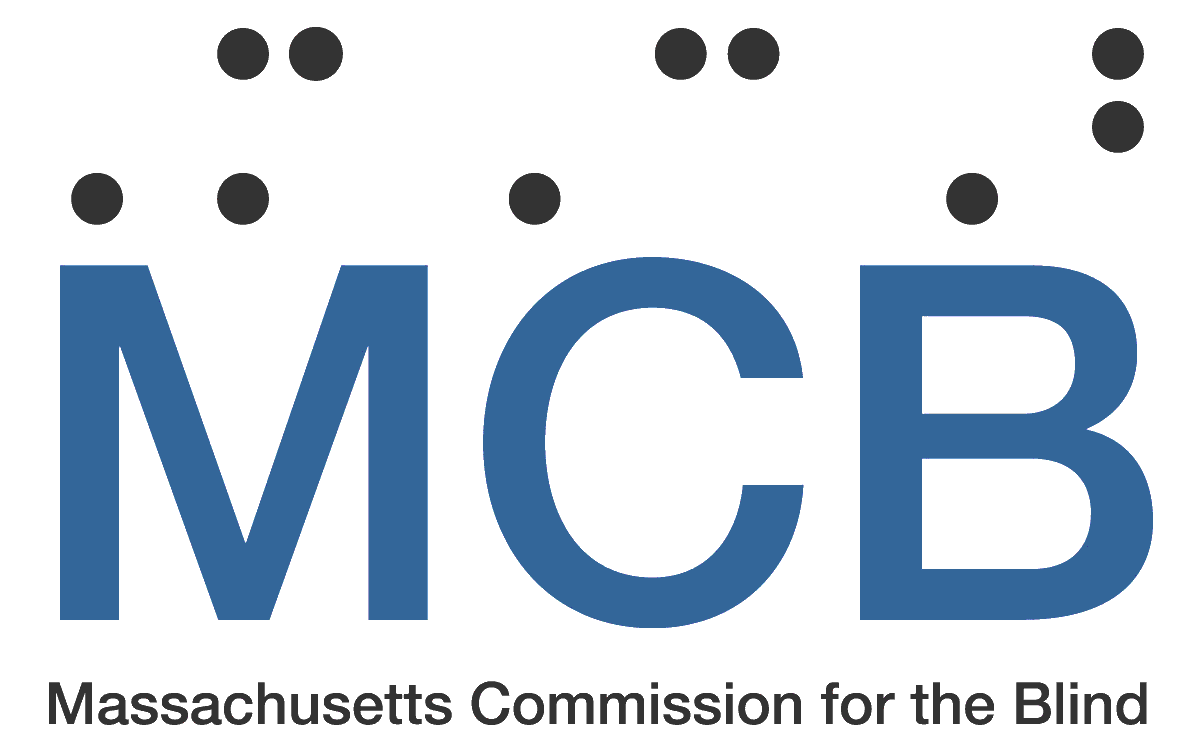- Massachusetts Commission for the Blind

A typical day for Mary Connor might include water aerobics at the YMCA; going to her book club; checking in with her senior support group; listening to public radio; or spending quality time with her husband in Groveland, a small town near the Merrimack River. The couple, who have been together fifty-five years, reside in a senior living community near their daughter.
For the most part, Mary feels very fortunate. However, she faces daily challenges due to macular degeneration. All of Mary’s activities require adaptations.
Mary travels to the YMCA by the bus transportation provided by her community. She logs into her book club—hosted by the Perkins Library—using her iPad Pro. She listens to the radio through an Amazon Echo Dot smart speaker. She attends a senior support group in nearby Newburyport for individuals with low-vision hosted by Massachusetts Association of the Blind and Visually Impaired (MABVI)—only now due to COVID-19, instead of attending in person, she connects via her phone from the Massachusetts Equipment Distribution Program (MassEDP). With her phone and other technologies, Mary checks the weather, creates grocery lists, and catches up with friends.
Through it all, she maintains a positive attitude to adopt and learn smart technology with assistance from the Massachusetts Commission for the Blind (MCB).
Mary was born in Ireland in 1938 to a large family. She moved to the United States at a young age to live near relatives. It was scary, said Mary, because the family worried that they might not settle and find employment. However, it all worked out, and Mary’s family found a home. Mary eventually married and settled in Lexington with her husband. They raised a family, and Mary worked for the local school district in the guidance department for 20 years. After that, she started her own business driving seniors to medical appointments and more, a business that lasted for 15 years. In fact, for eight years, Mary ferried one passenger who had macular degeneration. Mary did not know it at the time, but she was to develop the same condition—a condition that had affected her father.
Over time, Mary began to notice her vision was deteriorating, and Mary stopped driving. Mary mourned this loss of independence and the opportunity to help others. Like many facing visual impairment, Mary simply did not know what to do.
Mary sought assistance in the community of the blind and visually impaired after being registered with MCB. MCB provided Mary with the technology and counseling she needed as soon as possible. That’s when Mary met Mike Ludden. Mike joined MCB in 1986 as a Vocational Rehabilitation counselor (VR), and now works in Social Rehabilitation (SR) in MCB’s Older Independent Blind Program (OIB). Due to his experience with seniors, Mike was familiar with Mary’s concerns. Mary and Mike hit it off from the start.
“Mike was terrific,” said Mary. “He is a very pleasant, low-key person and a terrific listener. He didn’t come in with a bag of tricks and supplies, and he never pushed me when I wasn’t ready to try something new.”
“Mary is resourceful, has a great sense of humor, and is highly motivated to remain as independent as possible,” said Mike. “At my first home visit, Mary was eager to learn about the full range of vision rehabilitation services.
The pair set to work. Mike’s approach was to work with Mary slowly to establish a good working relationship.
“My first visit with individuals who are visually impaired is so important so I can get a handle on the whole situation. I do a lot of listening in the beginning and provide people with the info available. I really want them to know that services are available throughout their lives.”
Mike tells individuals that the vision rehabilitation process can take up to a year or longer. Typical vision rehabilitation services include rehabilitation teaching, mobility training, functional vision assessment, assistive technology, and referrals to other agencies that serve the visually impaired. The impact of these services can be dramatic. For example, some individuals start crying when they try out a device that enables them to improve their reading ability or see their television better. As their independence increases, they become more hopeful about their future as a person with vision loss. By using aids or adaptive strategies, they realize there are still many basic activities they can still do.
Mary embraced vision rehabilitation services. She received rehabilitation teaching, mobility training, and a Senior Vision Assessment at the Carroll Center for the Blind.
“She was very energized and very social,” said Mike who also encouraged Mary to join support groups. “Low vision support groups are peer support groups, not group therapy sessions. They provide connections with other visually impaired people and help people work together to remain as independent as possible.”
